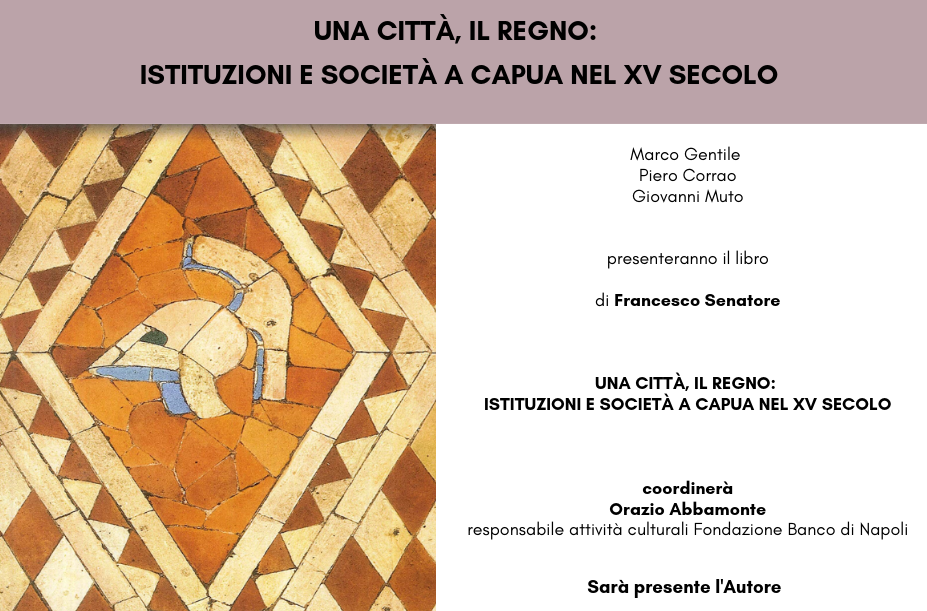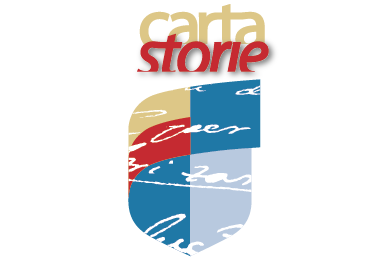
Presentation of Book by Francesco Senatore | May 30, 2019
Una città, il Regno: istituzioni e società a Capua nel XV secolo
Presentation of a book by Francesco Senatore
May 30, 5:30 p.m., Banco di Napoli Foundation
Thursday, May 30th – at the Foundation Headquarters – Marco Gentile, Piero Corrao e Giovanni Muto will present a book by Francesco Senatore entitled, “Una città, il Regno: istituzioni e società a Capua nel XV secolo.” The author will be in attendance.
“Through a rigorous analysis of archival sources, the book contains an institutional micro-history of 15th Century Capua, during the reign of D’Angiò Durazzo and D’Aragona, which is of keen interest for its political and social complexity. By avoiding traditional simplistic interpretations, which were often conditioned by an anxiousness to compare the events in Southern Italy with those happening at the same time in the center and north of the peninsula, the author highlights the special nature of the rapport between the Crown and the local elites, with strong areas of collaboration characterizing the relationship between the city center and the outlying areas, which are categories studied intensely in this study, at least in their traditional accepted meaning as counterpoints. There are important acquisitions concerning the material constitution of the Kingdom and the makeup of its administrative apparatus, marked by its singular dialectic between progressively consolidation forms and strong incidence of personal relationships with the king, which were a constant and pervasive presence in the dynamics of power. After all, the meticulous close examination of a significant number of sources make Capua an ideal place to observe the institutional diversification of the Kingdom, examining many judgmental stereotypes and legends, and providing an opportunity to ponder the history of Southern Italy. All of this is useful in creating knowledge about the formation of Southern Italy’s highest ranking officials and their relative mentality, about the relationship between its social classes and institutions, about the King and his own apparatus, and in a word, about the complex web of interests, aspirations, alliances and conflicts through which the history of the community evolved in time.”
To see the programme, click here. (in Italian)
